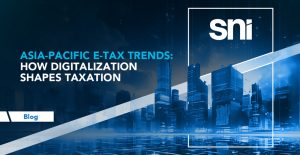The National Agency for Fiscal Administration (ANAF) has already introduced a lot of electronic tax regulations in Romania, starting with SAF-T (Informative Declaration D406 in particular), and now a new e-Invoicing system (e-Factura) and e-Transport system. The first of these new systems, the SAF-T reporting, was implemented for large taxpayers in January 2022, while e-Invoice and e-Transport are expected to become mandatory later in 2022. You can find the timeline and other details for the e-Invoice below.
You can find latest developments about the process on Five key questions about e-invoicing in Romania | New Edition.
1. If e-Invoicing becomes mandatory will we use SAF-T Reporting too?
Yes, SAF-T Romania is a different report from e-Factura and has no effect on timelines, taxpayer obligations, content, or technical details.
2. What is the date that e-Invoicing will become mandatory?
Implementation of the Romania e-Invoice is planned to be completed in two phases.
Issuing and transmitting invoices to the national electronic invoicing system between April 1 and June 30, 2022 is voluntary.
The obligation to generate and send e-Invoices to the system will start on July 1, 2022.
Taxpayers must issue and transmit the e-Invoice in XML format to the RO e-Invoice system, in which validation, structure, syntax, and semantic checks are done automatically and must be archived for 10 years.
3. What are high fiscal risk products?
ANAF announced the high fiscal risk products list with the new RO e-Invoicing system. This list is expected to be extended over time. High fiscal products include:
- Vegetables and plants, roots and tubers, foodstuffs falling within CN codes 0701 to 0714
- Edible fruits; peel of citrus fruits or melons falling within CN codes 0801 to 0814
- Beverages, alcoholic beverages, and vinegar falling within CN codes 2201 to 2208
- Salt, sulfur, earth and stones, plaster, and lime and cement falling within CN codes 2505 and 2517
- Knitted or crocheted garments and clothing accessories falling within CN codes 6101 to 6117
- Clothing and clothing accessories, other than knitted or crocheted, falling within CN codes 6201 to 6212 and CN codes 6214 to 6217
- Footwear, gaiters, and the like; parts of these articles falling within CN codes 6401 to 6405
4. What are the main ways of generating, transmitting, and receiving electronic invoices according to the new regulation?
Tax authorities propose two different methods for submission. The first e-Invoices can be submitted from the taxpayer’s ERP system to tax the authority directly via shared APIs. The second method involves sending to third-party companies and service providers. In both cases, using SPV (private virtual space) is mandatory and registered to the portal with a digital certificate. e-Invoices must be generated in XML format.
5. Is an electronic signature requested before the transmission of the invoices?
No, the electronic document signed in the RO e-Invoice system by the Ministry of Finance digital signature after transmission. The MoF signature is connected with taxpayers’ digital certificates, which are used for registering SPV. Each taxpayer, as well as third parties and service providers, needs digital certificates.
For more information about the process and our solutions, please contact us at contact@snitechnology.net





